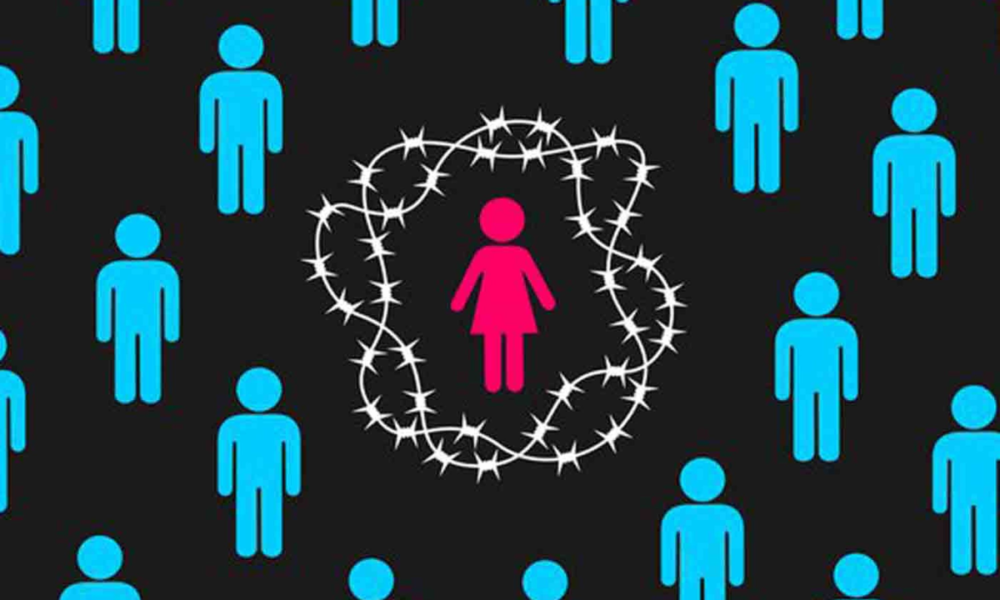Content warning: misogynist violence, white supremacist terrorism
In February 2018, a young man stabbed a woman in a Toronto massage parlour. That same year, another man killed 10 people in a van attack in Toronto. In December 1989, a man barged into Montreal’s École Polytechnique just a few miles away from McGill and murdered 14 engineering students, all of them women. The common thread linking these attacks is incel ideology. Incels, or “involuntary celibates,” men who, frustrated at their perceived ostracization from society, blame women and sexually active men for their own lack of sexual activity. The incel movement is a misogynistic one, oftentimes borrowing violent tactics and rhetoric from white supremacists and homophobic movements. Although incels are mostly active on online forums, away from public scrutiny, they rose to popular attention after the 2018 Toronto van attack. The perpetrator was a self-identifying incel whose social media accounts were filled with misogynistic posts. Since the attack, security experts and the media have fuelled a public debate on whether incels pose a national security threat as terrorists, or whether their danger is overestimated. This debate, however, does very little to address the daily instances of misogynistic violence that feminine-presenting people experience in spaces like their homes, public transportation, and even university campuses.
Those who argue that the media inflates the incel threat also tend to claim that the problem is first and foremost a mental health issue. According to this logic, incels should not be treated as terrorists or violent threats, but rather understood as lonely men struggling with mental health. However, this debate is unhelpful in stopping men from adopting incel ideology. Although non-carceral alternatives to justice are necessary to reimagine our deeply racist and ableist society, the fact that the first instinct is to claim that these men are acting out of distress, and not hatred, proves how much we are willing to excuse the behavior of white men. Instead of engaging in a debate over semantics, we should reframe what we understand as violence.
The question of whether incels are violent terrorists should not depend on how many people they victimize or kill. This approach fails to address the root causes of misogyny and violent nature of incels in the first place. Incels are not violent only when they kill. Regardless of physical action, their rhetoric is violent in and of itself because it rests on the idea that they are entitled to women’s bodies. The links between incel rhetoric and other discriminatory ideologies particularly endangers women experiencing intersectional oppression. Incels blame women for their feelings of inadequacy, and although they express anger at systemic issues of discrimination that also affect men, like fatphobia, their main grievance is a nostalgia for the past when the concept of consent had not entered public consciousness.
Although their views push misogyny to the extreme, incel ideology and rhetoric exists far beyond their chat forums, even creeping into university spaces. As such, we should reframe our conceptions of what counts as violence to include the systems of oppression that protect men at all costs, at the expense of others. At McGill, class debates about women’s rights, queer identity, and racism manifest as frequent instances of marginalized people’s lives being treated as debatable topics. These daily forms of oppression alienate non-men in classrooms and send a clear message that people’s humanity can be contested, potentially reinforcing budding incel ideology. Furthermore, these oppressive systemic factors, such as class discussions upheld by professors, force marginalized people into positions of resistance, whether they want to or not.
Where the incel movement is afforded compassion, or even pity, the existence and experiences of women and queer and racialized people receives unfiltered contention. This should force us to question what we are willing to tolerate and what we categorize as violence. Whether incels should be labelled terrorists or not does little to prevent violence—it only encourages preventative action after someone has been murdered. Violence exists on a spectrum and men must understand the consequences of their complicity in pushing that spectrum to the extreme. It is their responsibility, as well as that of university administrations and instructors, to identify signifiers of misogyny, violence, and incel arguments and to counteract them well before they morph into murder.








Lepine was not an incel – he would, under the current Men’s Rights Movement categorizations, fall under Men’s Rights Activists who are opposed to feminism and programs that promote women and women’s issues, such as gender studies. Not everything that “terrorizes” people is terrorism and not every attack against women is incel-related. And what we call them matters because what we call them affects how they are being treated. Personally, I do not agree that they are terrorists because, at least from the ones who have mobilized to violence, there is no concrete political motivation which is what terrorism is about. Also, you need to check your dates because the underage offender who was charged with terrorism did not attack in February of 2018 but in February of 2020.
Pingback: Kanye West and the spectre of toxic masculinity on Twitter - The McGill Tribune